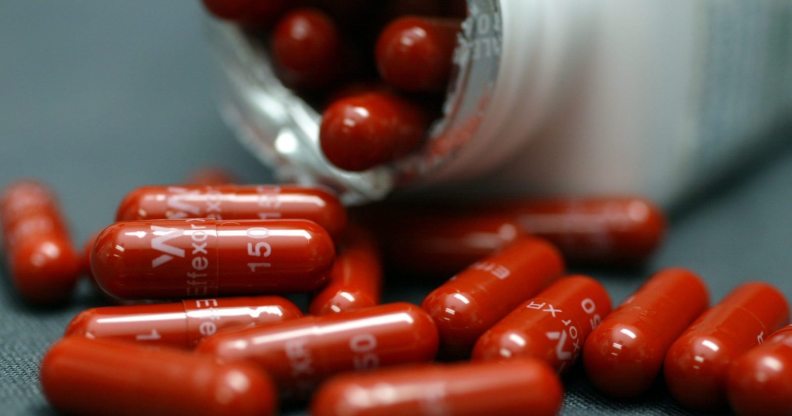Anti-depressants do work, says major new study

(Photo Illustration by Joe Raedle/Getty Images)
A breakthrough study has found that anti-depressants do work.
A report published in medical journal the Lancet revealed – from analysing the data of 522 trials which involved 116,477 people – that the 21 most common anti-depressants were more effective at reducing depression symptoms than placebo pills.
There has been a widespread medical debate about whether anti-depressants work, especially as the usage rate in England doubled between 2006 and 2016, with 64.7 million prescriptions being given out.
Many argued that placebos were having the same effect on people but the study “finally puts to bed the controversy on anti-depressants,” said the Royal College of Psychiatrists.
Lead researcher Dr Andrea Cipriani, from the University of Oxford, told the BBC: “This study is the final answer to a long-standing controversy about whether anti-depressants work for depression.

Colton Haynes: I spent 3 weeks ‘paralysed’ in bed with depression and anxiety
“We found the most commonly prescribed anti-depressants work for moderate to severe depression and I think this is very good news for patients and clinicians.”
Depression and other mental health issues are rampant in the LGBTQ community.
LGBTQ teens are six times more likely to experience symptoms of depression than the general population, and four times more likely to attempt suicide than straight people.
Between 38-65 percent of transgender individuals experience suicidal ideation, according to Nami.
A Stonewall report on transgender people living in Britain found that there was often a lack of formal training of health care professionals in LGBTQ issues and the unique needs of the community.

Lesbian, gay and bisexual teenagers at much greater risk of depression
When accessing general healthcare services in the last year, two in five trans people (41 percent) said healthcare staff lacked understanding of trans health needs, the report found.
Sienna, 21, is a trans woman living in Scotland. She said that if you aren’t out then it can lead to issues concerning mental health – but this can have an impact on the gender confirmation services that you can have access to.
“Being forced to live as someone you’re not, in a society that doesn’t accept you, can cause mental health issues, but there are people who feel they can’t seek help for mental health problems because they won’t be allowed to transition,” she said.
63-year-old Oscar said that his experience in the Gender Identity Clinic was “appaling” and that if it wasn’t for the support of his GP “it would have been a nightmare”.

A doctor talks to her patient (stevanovicigor)
A shocking 90% of trans youth are depressed, research finds
Anthony, 29, added that the lack of understanding around transgender issues led to a lot of misconceptions that can be damaging.
“An NHS nurse asked me about my recent gender reassignment surgery and then went on to compare me to a paedophile as if being trans is the same thing. It’s shocking how little training NHS staff have had,” he said.
Depression and anxiety are high in the LGBTQ community as 22 percent gay and bisexual men are currently experiencing moderate to severe levels of mixed depression and anxiety compared to seven percent of men in general.
Four in five (79 percent) lesbian and bisexual women say they have had a spell of sadness, felt miserable or felt depressed. This increases to 84 percent of bisexual women and 86 percent of black and minority ethnic women.
Three quarters (74 percent) of lesbian and bisexual women say they felt anxious or nervous. This increases to 78 percent of bisexual women and 81 percent of black and minority ethnic lesbian and bisexual women.
Readers affected by the issues raised in this story are encouraged to contact Samaritans free on 116 123 (www.samaritans.org) or Mind on 0300 123 3393 (www.mind.org.uk). Readers in the US are encouraged to contact the National Suicide Prevention Line on 1-800-273-8255.

